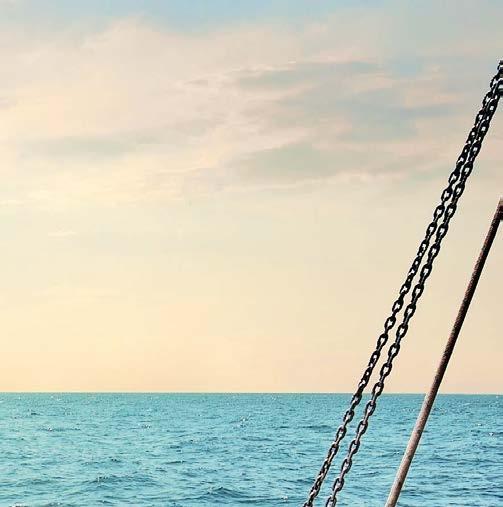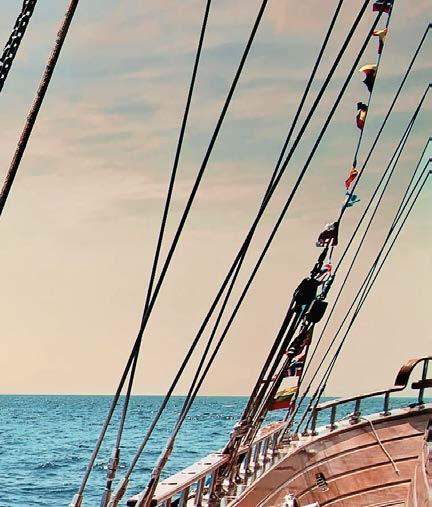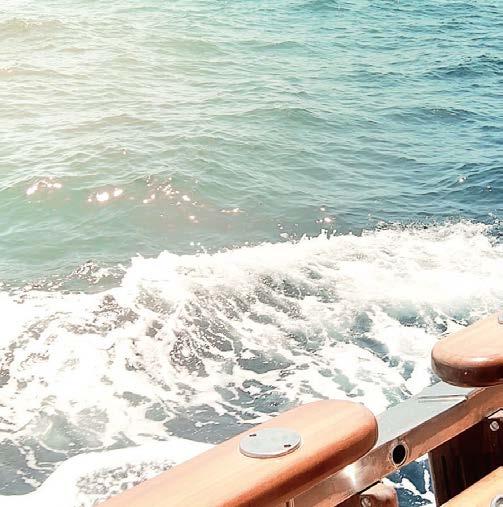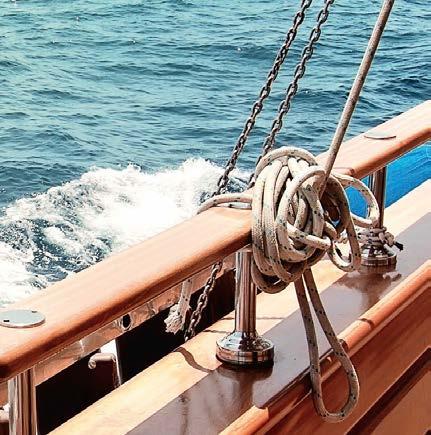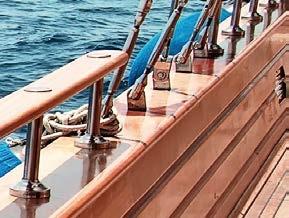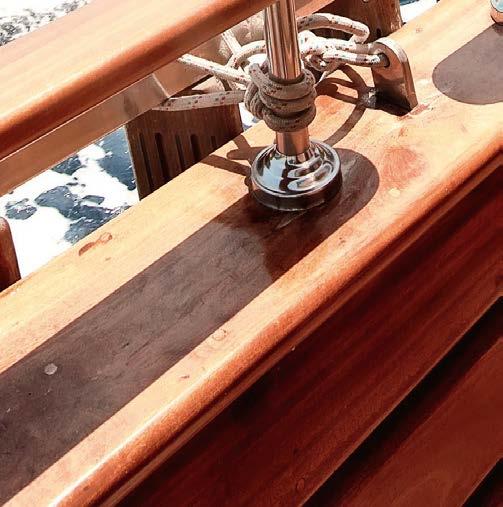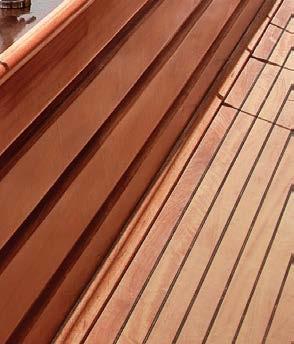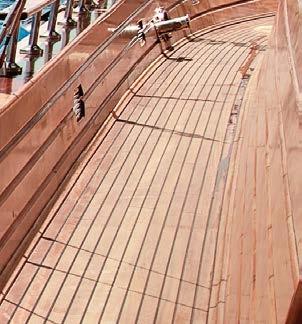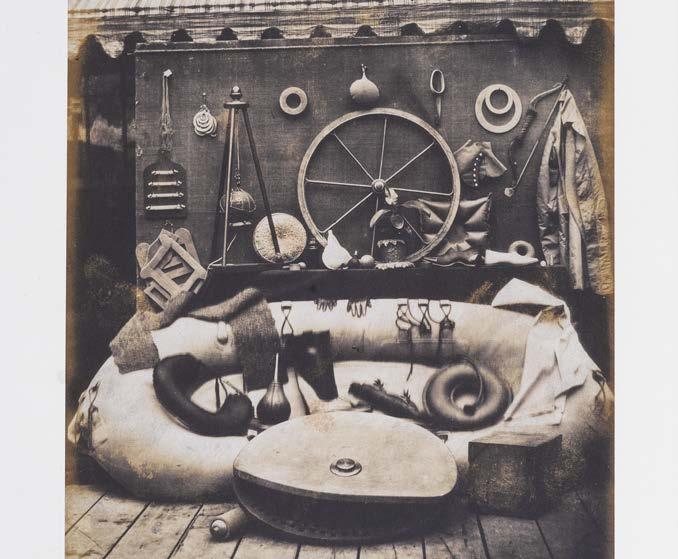
4 minute read
STERNPOST
Articles in India Rubber...
Sinking and drowning are overlooked in the canon of British inventions, says Dave Selby
Since 1987 Classic Boat has made a massive contribution to popularising sinking, and the closely associated discipline of drowning, not least through the stirring and inspirational efforts of our readers, some of whom have even managed to do it on the Norfolk Broads, despite its distinct lack of low-lying coral atolls. Indeed, the fact that you’ve been discovering new ways to do it for over 35 years shows commendable commitment and is a tribute to that spirit of innovation and invention which makes you proud to be British.
Yet even in the centuries before that, when sinking-related leisure drowning was mostly the preserve of a lucky few within a five-mile radius of Cowes on the Isle of Wight, there were moves afoot to democratise the pastime, and I’ve found evidence that in addition to inventing everything else including the Spinning Jenny, Sinclair C5 and Rickets, Britain also invented drowning and sinking, as this photograph of a rubber dinghy at the 1851 Great Exhibition of that year proves. I really am not kidding, and if any Classic Boat reader can find an earlier photo of one I’ll give you one of my three-dozen spare Seafarer echo sounders (PP9 battery not included).
The race to revolutionise recreational drowning dates back to 1823 when Scottish chemist Charles Macintosh developed a way of bonding rubber to fabric to create a waterproof raincoat, several years before the invention of rain by another Brit. In 1839 the Duke of Wellington who invented the sandwich or cardigan, or possibly the rather rubbery Wellington sandwich – I’m never sure which – devised an inflatable pontoon. Its success at floating can be gauged by the fact that he then developed the Wellington boot.
Meanwhile in the early 1840s Macintosh got into a patent spat with an uppity American you’ve never heard of by the name of Charles Goodyear over the vulcanising process of stabilising rubber. This in turn led to the invention of lawyers, which further spurred the greatest scientific minds in Britain to develop a means of drowning them. An early attempt was the “boat cloak” personal drowning system developed by naval lieutenant Peter Halkett which transformed a rubberised poncho into a rubber dinghy by means of built-in bellows in the pocket. This was one of history’s great lost opportunities because if only Mae West had lived earlier she would no doubt have said
to Halkett: “Is that a canoe in your pocket, or are you just pleased to see me?” However, despite accidentally inventing the puffer jacket, Halkett was rather deflated when the Admiralty wrote back saying: “My Lords are of an opinion that your invention is extremely clever and ingenious, and that it might be useful in exploring and surveying expeditions, but they do not consider that it would be applicable for general purposes in the Naval Service.” Snooty, or what! Nevertheless explorer John Franklin used a larger version on his 1845 Arctic expedition and was never seen again. Meanwhile, evolutions and further prototypes of Halkett’s PIC: BONHAMS poncho boat can be seen every year at the Southampton Boat Show on stand C351 or C352, where a company that changes its name every year is running a crowd-funding campaign offering investors the opportunity to get in at the bottom – quite literally – of what promises to be a buoyant market – but then again may be not. Back at the 1851 Great Exhibition the extraordinary photograph of the stand with the rubber dinghy on was captioned “Articles in India Rubber,” and intriguingly ascribes it to Macintosh, presumably as the manufacturer of the products on display. However, if you look closer, you’ll notice rather disconcertingly that one of the contraptions in the boat looks suspiciously like a haemorrhoid cushion, which points to the rather unnecessary invention of piles by a vindictive British inventor who felt spurned by the Admiralty. This fascinating 1851 glimpse of the future is astonishing in another way, because the photograph was credited to none other than Henry Fox Talbot who granted exhibition organisers use of the new pioneering technique he first “Since 1987, made public in 1835. Yes, I know Louis Daguerre was Classic Boat also up to something at around the same, but he has done much to popularise wasn’t British. The six million visitors who thronged to the Great Exhibition in London’s Hyde Park – around a third of sinking, and the population of Britain – included luminaries such its closely as Charles Darwin, Michael Faraday, Karl Marx, associated discipline of Charles Dickens and Tom Cunliffe, then aged 12, who bunked off school for the day to bag this ex-display early Avon Red Crest at a massive discount. To this drowning.” day he swears by at, and quite often at it. The rest is history. Come to think of it, I regret what I said about lawyers. I’ll be sunk without one.

